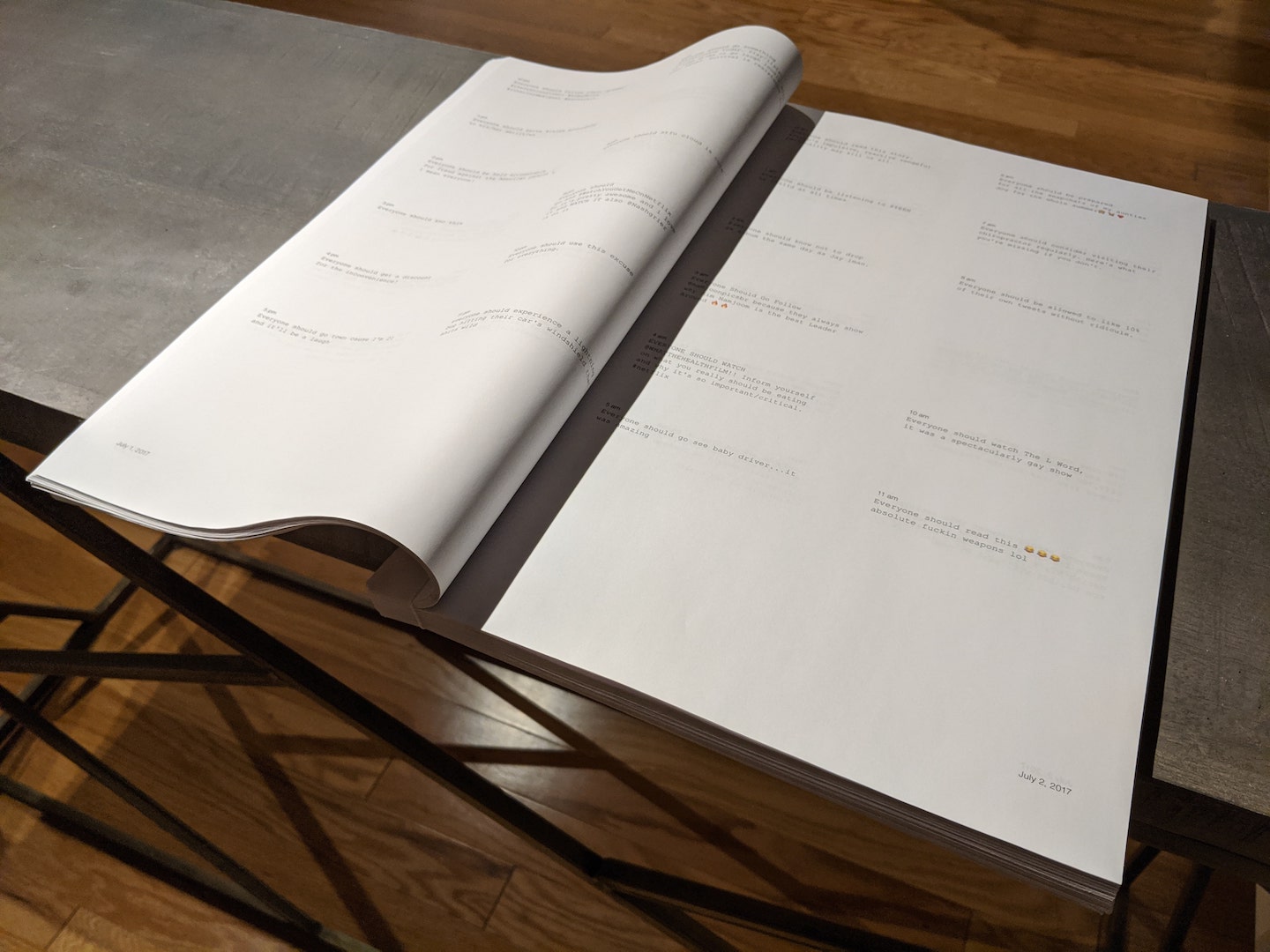
Everyone Should is a book and Twitter bot. Every hour, the bot finds the most recent tweet beginning with the words “everyone should” and retweets it. These messages are collected in the bot’s timeline, and in a large book designed in the form of a diary. The resulting selection of transient personal and collective moments presents an alternative model of online viewer attention—it is both archive and accumulation.
Everyone Should was shown and sold at Rhizome’s Internet Yami-Ichi at the NADA art fair, and is part of the collection at the W. Van Alan Clark, Jr. Library at the School of the Museum of Fine Arts, Tufts University. It was also included in the solo exhibitions w-t-f and BODY TEXT.
 Photo by Graham Bessellieu
Photo by Graham Bessellieu
The authoritative, attention-seeking sentiment of “everyone should” is a recurring pattern of language online. Posting something online for circulation into other peoples’ timelines implicitly assumes that whatever you post is so interesting that it deserves to be foisted onto others while they browse; whether or not the actual words “everyone should” are used, it is built into the form of a tweet.
This project also suggests an alternative way to select and filter content out of the endless stream. Instead of the complex popularity weighting and demographic targeting algorithms that platforms like Twitter use to surface material, the project uses one simple rule. But the resultant accumulation based on a common pattern of language becomes a strange archive of personal and collective moments that are otherwise lost in the flood.
Maintaining this project over time put me in the position of editor, curator, and content moderator. The bot sometimes retweeted racist or violent speech. I had to make normative judgments about what counted as unacceptable speech, and act to remove it. But at Twitter’s scale, it was impossible for me to review everything. This is the core dilemma of governing online platforms.